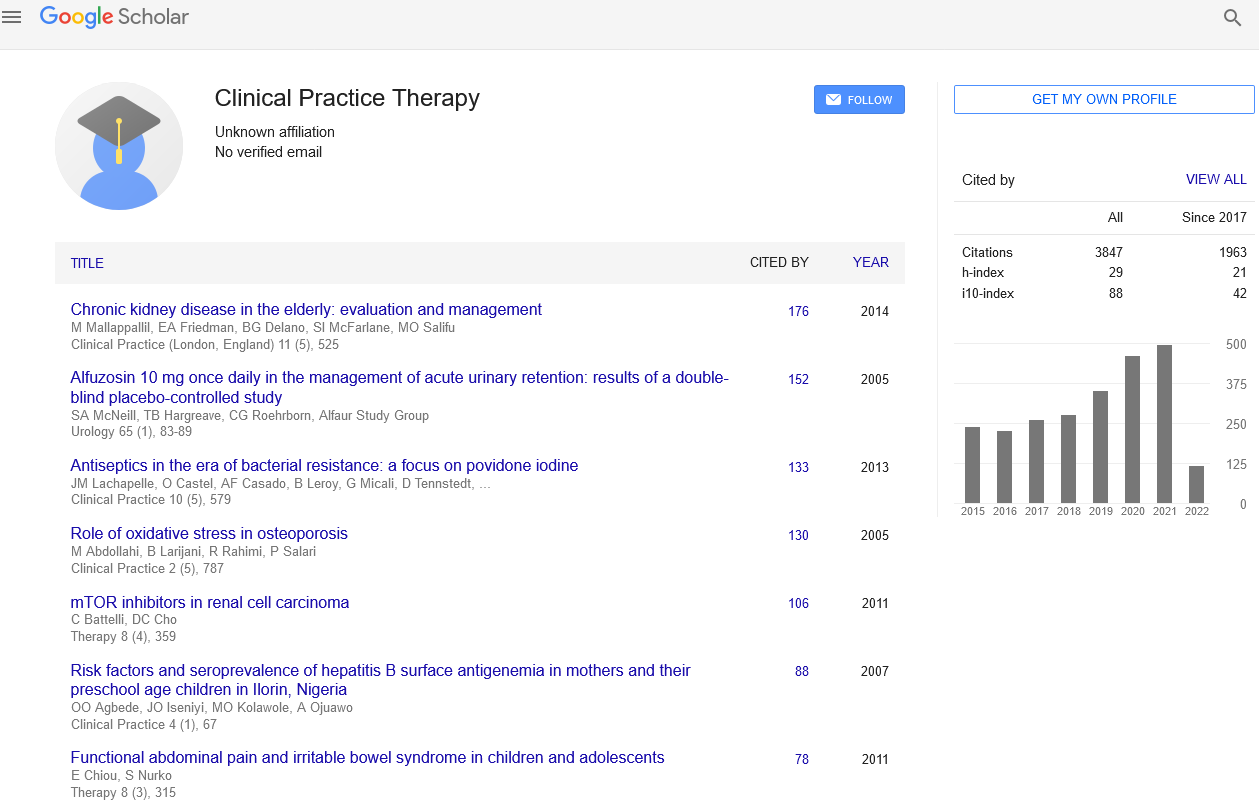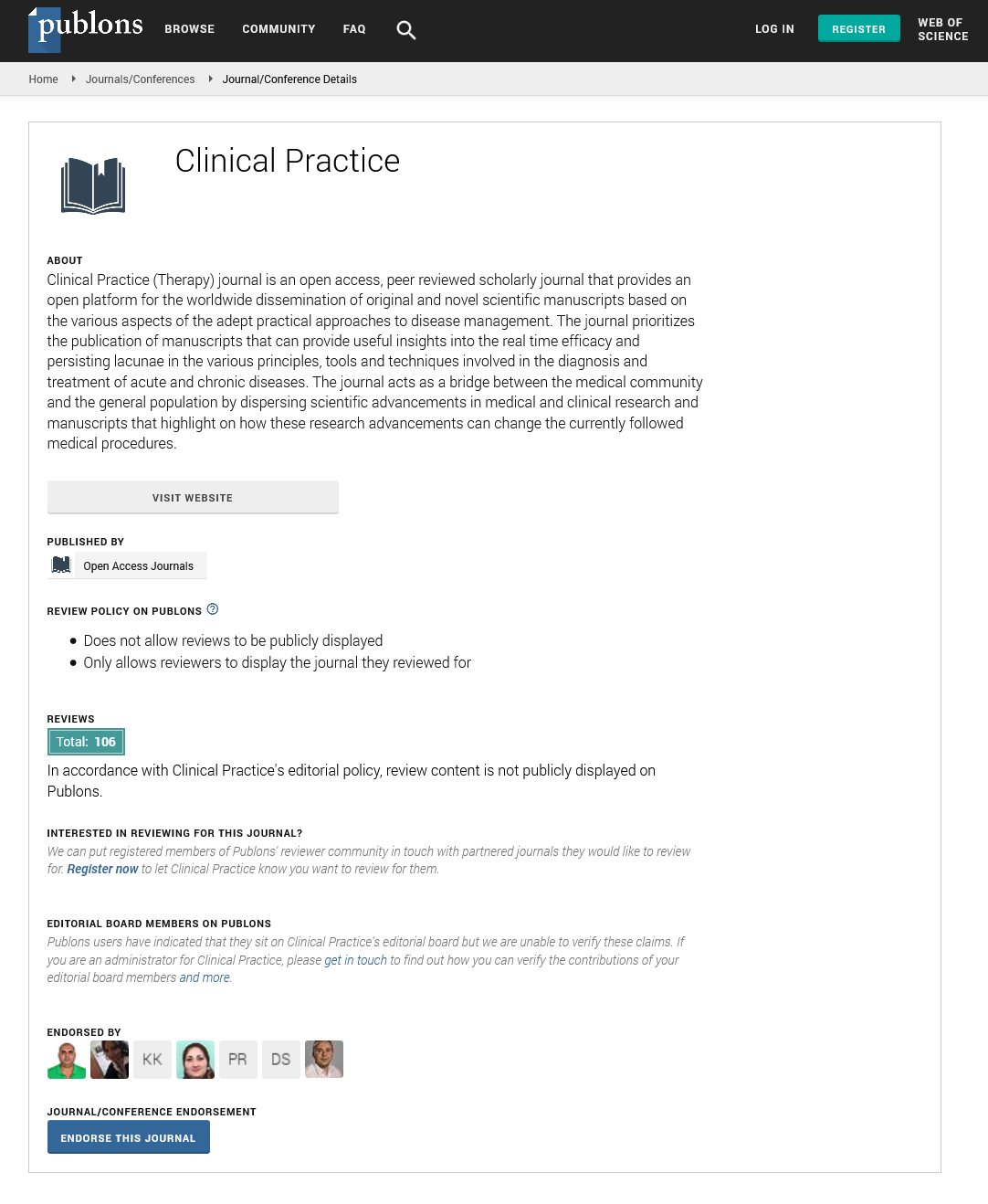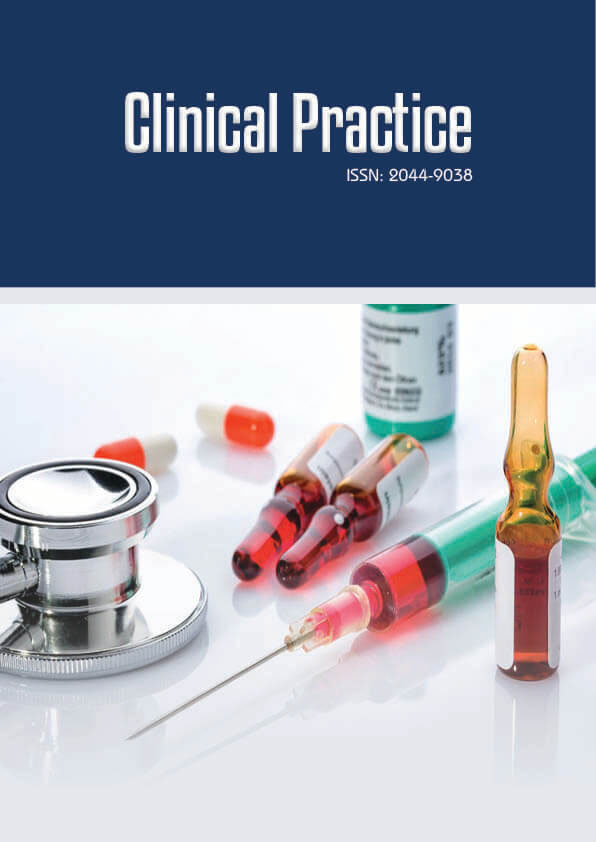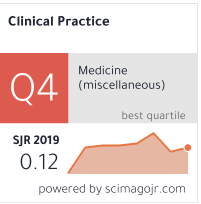Opinion Article - Clinical Practice (2025) Volume 22, Issue 1
Impact of Recipient Polymorphisms in the KRAS Gene rs712 on the Overall Survival Rate of Hepatocellular Cancer Following Liver Transplantation
Kan Gong*
Institute of Urology, Peking University, No.8 Xishiku Street, Xicheng District, Beijing, 100034, China
- *Corresponding Author:
- Kan Gong
Institute of Urology, Peking University, No.8 Xishiku Street, Xicheng District, Beijing, 100034, China
E-mail: gongksn@gmail.com
Received: 01-Mar-2025, Manuscript No. fmcp- 25-159066; Editor assigned: 03-Mar-2025, Pre-QC No. fmcp-25-159066 (PQ); Reviewed: 17-Mar-2025, QC No. fmcp-25-159066; Revised: 21-Mar-2025, Manuscript No. fmcp- 25-159066 (R); Published: 28-Mar-2025, DOI: 10.37533/2044-9038.2025.22(1).1-3
Abstract
Hepatocellular carcinoma (HCC) is the most common primary malignancy of the liver and a leading cause of cancer-related mortality worldwide. Liver transplantation (LT) is a curative treatment option for patients with HCC, particularly those who meet Milan criteria. However, the overall survival (OS) rates following LT for HCC vary significantly between individuals, suggesting that genetic factors may influence patient outcomes. This article explores the potential impact of recipient polymorphisms in the KRAS gene, specifically the rs712 polymorphism, on the survival rate of HCC patients following liver transplantation. The role of genetic variability in treatment response and prognosis following LT is of growing interest, and this article provides an overview of recent research examining the KRAS gene’s role in HCC and liver transplantation outcomes.
Keywords
Hepatocellular carcinoma • Liver transplantation • KRAS gene • rs712 polymorphism • Overall survival • Genetic polymorphisms • Recipient genetics • Prognosis
Introduction
Hepatocellular carcinoma (HCC) is a major cause of morbidity and mortality worldwide, and liver transplantation (LT) remains the treatment of choice for patients with early-stage HCC who meet the Milan criteria. While LT offers curative potential for eligible patients, the overall survival (OS) following LT for HCC remains highly variable. This variability in outcomes suggests that genetic factors may play a crucial role in determining patient prognosis. One such genetic factor under investigation is the KRAS gene, particularly the polymorphism rs712. The KRAS gene is involved in the regulation of cell signaling pathways that control cell growth, differentiation, and apoptosis, and its mutations or polymorphisms have been linked to various cancers, including HCC. This perspective article examines the potential relationship between recipient polymorphisms in the KRAS gene rs712 and the overall survival rate of HCC patients following liver transplantation [1].
Genetic polymorphisms in the KRAS gene and their role in cancer
The KRAS gene encodes a protein that acts as a molecular switch to regulate cell signaling pathways. Mutations or polymorphisms in this gene can disrupt normal cellular processes, leading to uncontrolled cell proliferation and malignancy. The most well-known mutations in the KRAS gene are the point mutations at codons 12, 13, and 61, which are commonly associated with various types of cancer, including colorectal, lung, and pancreatic cancers. However, recent studies have also highlighted the role of KRAS polymorphisms, including the rs712 variant, in influencing cancer progression and patient outcomes.
The rs712 polymorphism in the KRAS gene has gained attention due to its potential influence on cancer susceptibility, prognosis, and response to treatment. Some studies suggest that polymorphisms in the KRAS gene may affect the tumor microenvironment, immune response, and the efficacy of targeted therapies, potentially contributing to the variability in overall survival observed in HCC patients following liver transplantation [2, 3, 4].
Impact of KRAS rs712 polymorphisms on hepatocellular carcinoma prognosis
Several studies have explored the role of KRAS gene polymorphisms in the prognosis of hepatocellular carcinoma. Research has shown that genetic variations in the recipient, including those in the KRAS gene, may impact the development and progression of HCC as well as the response to therapies such as liver transplantation. The rs712 polymorphism in particular has been linked to various outcomes in cancer patients, though its specific role in HCC remains under investigation.
In liver transplantation for HCC, the impact of recipient genetic factors, including KRAS polymorphisms, is of particular interest. Studies have suggested that recipients with specific KRAS gene polymorphisms may experience different survival rates after LT, possibly due to differences in immune response or tumor behavior. Some researchers have postulated that certain KRAS genotypes may be associated with better tumor control, while others may be linked to poorer post-transplant outcomes, including recurrence of HCC [5, 6].
Possible mechanisms behind KRAS rs712 influence on HCC outcomes
Immune response modulation:
The KRAS protein plays a role in modulating the immune system's response to tumors. Polymorphisms in the KRAS gene, such as rs712, could influence the ability of the immune system to detect and eliminate cancer cells, potentially affecting the recurrence rate and survival outcomes following liver transplantation.
Tumor microenvironment alterations:
The KRAS protein is involved in regulating signaling pathways that control the tumor microenvironment. Specific KRAS polymorphisms may alter these pathways, influencing tumor growth, angiogenesis, and metastasis. Such changes could impact the behavior of HCC after liver transplantation and influence long-term survival.
Therapeutic implications:
Variants in the KRAS gene may influence the responsiveness of HCC to adjuvant therapies, including immunotherapy, chemotherapy, and targeted treatments. Understanding how the rs712 polymorphism affects treatment efficacy could help identify personalized treatment strategies for patients undergoing liver transplantation [7, 8].
Future directions in research
While the potential role of KRAS polymorphisms in the prognosis of HCC following liver transplantation is promising, further research is needed to clarify the specific mechanisms at play. Large-scale, multicenter studies are required to determine the clinical significance of the rs712 polymorphism in liver transplant recipients and to assess its potential as a prognostic biomarker for HCC. Additionally, investigating how recipient genetics interact with other factors, such as tumor characteristics and environmental exposures, will provide a more comprehensive understanding of HCC prognosis and outcomes [9, 10].
Conclusion
The role of recipient genetic polymorphisms in the KRAS gene, particularly the rs712 variant, is an emerging area of research with potential implications for the prognosis of hepatocellular carcinoma following liver transplantation. Understanding how these genetic variations influence tumor behavior, immune response, and treatment efficacy may provide valuable insights into optimizing patient outcomes. While the research is still in its early stages, exploring genetic markers like the KRAS rs712 polymorphism could lead to personalized treatment approaches that improve overall survival for liver transplant recipients with HCC.
References
- Torres AG (2004) Current aspects of Shigella pathogenesis. Rev Latinoam Microbiol 46: 89-97.
- Varghese S, Aggarwal A (2011) Extended spectrum beta-lactamase production in Shigella isolates-A matter of concern. Indian J Med Microbiol 29: 76.
- Peirano G, Agersø Y, Aarestrup FM, Dos Prazeres Rodrigues D (2005) Occurrence of integrons and resistance genes among sulphonamide-resistant Shigella spp. from Brazil. J Antimicrob Chemother 55: 301â305.
- Kang HY, Jeong YS, Oh JY, Tae SH, Choi CH, et al. (2005) Characterization of antimicrobial resistance and class 1 integrons found in Escherichia coli isolates from humans and animals in Korea. J Antimicrob Chemother 55: 639-644.
- Pan J-C, Ye R, Meng D-M, Zhang W, Wang H-Q, et al. (2006) Molecular characteristics of class 1 and class 2 integrons and their relationships to antibiotic resistance in clinical isolates of Shigella sonnei and Shigella flexneri. J Antimicrob Chemother 58: 288â296.
- The HC, Thanh DP, Holt KE, Thomson NR, Baker S (2016) The genomic signatures of Shigella evolution, adaptation and geographical spread. Nat Rev Microbiol 14: 235.



